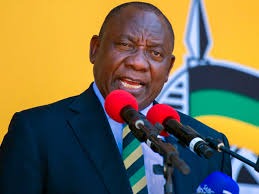In a candid interview with Aldrin Sampear, MacDonald Mathabe, former public coordinator of the MK Party (MKP), has challenged key narratives surrounding the party’s origins. Mathabe refuted claims by advocate Dali Mpofu, who has positioned himself as a central figure in MKP’s creation. Mathabe’s revelations also contest the widely held belief that former President Jacob Zuma played a leading role in founding the party, offering a fresh perspective on MKP’s early history.
Mathabe clarified that Zuma, often perceived as the visionary behind MKP, was not its founder or primary driving force. Instead, he claims that Zuma was actively courted by prominent political players to leave the African National Congress (ANC) and join MKP. “Zuma was not the founder of MKP,” Mathabe asserted. “He was heavily persuaded by influential figures to leave the ANC and align with this new movement. It wasn’t an organic development where he led from the outset.”
This account significantly alters the narrative of MKP’s inception. Mathabe emphasized the instrumental role of former Free State Premier Ace Magashule, describing him as a key figure in persuading Zuma to transition to MKP. According to Mathabe, this move was a calculated political strategy rather than a personal initiative by Zuma to establish a new political force.
Former MK Party national organiser MacDonald Mathabe says Adv. Dali Mpofu’s statement that he was part of the formation of the organisation is misleading. He tells @AldrinSampear that even party president Jacob Zuma is not the founder of the party, but was canvassed to leave the… pic.twitter.com/Jsrdw44vT6
— Newzroom Afrika (@Newzroom405) November 8, 2024
Mathabe also disputed Dali Mpofu’s claims of being a founding figure in MKP. He criticized Mpofu’s assertions as misleading and argued that the party’s origins were shaped by collective political maneuvering rather than individual leadership. “The story of MKP’s formation has been oversimplified,” Mathabe said, urging a more nuanced understanding of the party’s history and the interplay of various political actors involved.
These revelations cast a new light on the MKP’s early days and challenge long-held perceptions of its leadership. If Mathabe’s account holds true, it suggests that Zuma’s role in the party was more a product of external pressures and strategic alignment than a deliberate effort to lead or create the organization.
The dispute over MKP’s origins reflects broader tensions within the party about its leadership and identity. As South Africa’s political landscape evolves, this reexamination of MKP’s foundation could influence the party’s public image, legitimacy, and the broader narratives surrounding its key figures.
The revelations underscore the complexities of South African political history, where power dynamics and shifting allegiances often shape the stories of political movements. The ongoing debates about MKP’s origins may not only reshape the party’s internal identity but also provide fertile ground for historical and political analysis in the years to come.






















